Réseau d’action en santé cardiovasculaire (RASC)
Until September 9, 2026
Prevention of non-communicable diseases
Assisting individuals in adopting a healthy lifestyle – Approach 180

Prevention of non-communicable diseases
Assisting individuals in adopting a healthy lifestyle – Approach 180
By the Réseau d’action en santé cardiovasculaire (RASC) of La Chaire d’éducation interdisciplinaire pour un mode de vie sain
To access the training, go directly to the RASC's training portal.
Speaker
Dre Julie St-Pierre
To listen to his invitation, click on the following image:
Training Description
The Chair of Interdisciplinary Education for a Healthy Lifestyle offers you a broad-based and inclusive training that will allow you to obtain a certification of professional compliance in preventive care and support towards a healthy lifestyle.
General Objectives
- Better understanding of the issue of non-communicable diseases, including obesity, in order to provide appropriate interventions in an inclusive environment;
- Increase the professional’s sense of competence in managing non-communicable diseases and supporting a healthy lifestyle;
- Enable professionals to become agents of change and collaboration in their environment, promoting global health and prevention initiatives.
Lesson plan and specifics objectives (12 modules)
Module 1
- Why wait? Health at hand. This film is a playful and scientific quest aimed at a better understanding of individual and collective global health. Let's explore multi-sectoral and sustainable solutions driven by the desire to live healthy lives while contributing to the well-being of communities and the planet.
Module 2: From Universal Hygiene to Sustainable Health
- Describe the historical introduction of universal hygiene measures
- Define comprehensive and sustainable health
- Identify the economic impact of prevention
Module 3: Economic, social and cultural aspects of our lifestyle
- Define the social determinants of health
- Describe the impact of social determinants of health on healthy living
- Describe the relationship between social determinants of health and obesity
- Identify ways to adapt its interventions in accordance with the principles of equity and universal health accessibility
Module 4: Physical activity and movement
- Define and distinguish the following concepts: physical activity, sport, movement, physical inactivity and sedentary behavior.
- Describe the health effects of physical activity and physical inactivity.
- Identify physical activity recommendations for different life stages.
- Identify strategies to facilitate the establishment of objectives for the integration and success of a movement plan.
- Recognize the impact of the environment in which movement is practiced by identifying the relationships between physical activity, nature and pollution.
Module 5: The body's energy needs: 100% anti-diet
- Identify the energy needs of the human body in order to better understand its functioning
- Critically assess the wellness and weight loss industry in order to capture the negative impact of wellness and weight loss on the physical and mental health of individuals
Module 6: Healthy eating habits
- Describe the principles of healthy eating and how to implement them
- Recognize the importance of the food context and environment on the eating behavior of individuals
- Identify the factors that influence hunger and satiety and understand the different reasons why we eat
- Know the recommendations for salt, fat and sugar consumption
- Understand the ecological, economic and societal impacts of our food choices on sustainable health
Module 7: Sleep: needs and impacts
- Explain the normal organization of sleep and its functions
- Describe the impact of sleep on overall health
- Identify sleep needs at different stages of life
- Describe the key elements of good sleep hygiene
- Recognize warning signs of major sleep disorders requiring referral
Module 8: Sound Monitor Management
- Explain the effects of screens on overall health
- Identify screen time recommendations by age
- Describe strategies for healthy screen use
- Identify warning signs of cyber dependency
Module 9: From Physical to Mental Health
- Describe the foundations of wellness in a mental health context
- Identify how mental health can affect our individual and collective happiness
- Explain the relationship between mental health and NCDs
- Identify the psychosocial consequences of obesity
- Recognize appropriate and effective interventions to improve mental health through healthy living
Module 10: Obesity is a complex disease and its complications
- Treat obesity as a disease in order to provide patients with medical care that is fair and appropriate to their needs
- Describe the global health emergency related to obesity and its multisectoral impacts
- Recognize complications related to obesity
- Distinguish weight-related prejudice, stigma and discrimination to better respond
Module 11: Medical and surgical treatment of obesity
- Define the principles of universality, equity and accessibility of care
- Describe behavioral and motivational approaches to managing obesity
- To identify pharmacological treatments recognized in the management of obesity
- Explain the decision algorithm for bariatric surgery
Module 12: The first 1000 days and the rest of life
- Understand the basics of epigenetics and fetal programming
- Define the concept of the first 1000 days
- Understand the importance of the first 1000 days to reduce disease
Duration of training : 15 heures
Princing*
- 395 $, member and student member
- 450 $, non-member
*Only members in good standing can benefit from the member rate; your membership number will be requested to validate your membership..
To register, visit: https://lifestylelearning180.com/fkq.
Credits
-
Family: Conferences/seminars/workshops/courses recognized by FKQ
-
Type : Formation de la FKQ
-
15 credits
-
Proof: Continuing Education Certificate






